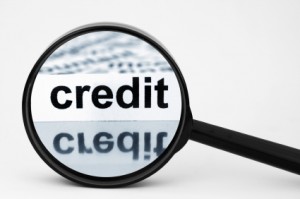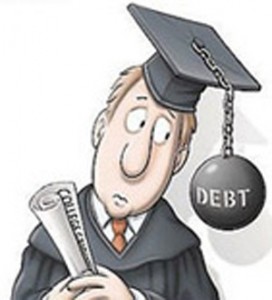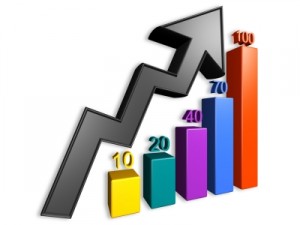June 25, 2012
 It might seem counterintuitive to some, but having a few credit cards in your wallet to be used in a smart manner is an excellent way to improve your credit score. As you know, having a high credit score is one of the keys to a financially successful life, if your score is mediocre to low then you will have a harder time acquiring loans, and the payments that you will make will pretty much always cost you more in the long run.
It might seem counterintuitive to some, but having a few credit cards in your wallet to be used in a smart manner is an excellent way to improve your credit score. As you know, having a high credit score is one of the keys to a financially successful life, if your score is mediocre to low then you will have a harder time acquiring loans, and the payments that you will make will pretty much always cost you more in the long run.
Millions upon millions of people get trapped by credit card debt every year, simply because they do not use the cards in a fiscally responsible way, and this not only causes a large debt, but it also can have quite a few personal implications as well.
The first way a credit card can help is that it shows a credit history. Always try not to cancel any credit cards because you have decided not to use them anymore, a long credit history, even for a card that has little use is far better than one that is only a few months or a year along because you decided to close all your old cards from five years ago. Anything that is new will show up with an inquiry on your credit report, which will bring your score down a bit for at least a few months and maybe up to a year, so try to hang on to as many older cards as you can.
If you do have some of these old credit cards, focus on using them every few months to buy something, for example fill up your tank with petrol using one of these cards every 2-3 months. This way the card appears to be active on your credit history, but it will not cause you any sort of undue burden to pay off when the bill comes due.
Another way you can use a credit card to your advantage is to ask for higher limits. Especially on those cards that are older. Higher unused limits will always help increase your score, especially if you keep your credit card debt at or below about 35% of the limit amount. It also shows that the credit card company has found you to be a trustworthy customer who is capable of paying bills and not racking up large amounts of debt.
The most important thing, however, is to always pay your bill on time. The very best option is to pay your bill in full and on time, but at the very least always aim to pay above the minimum balance and before it’s due. Nothing will be able to improve your credit score if you have consistently late payments each month; that will actually hurt your chances of getting any sorts of loans or other credit cards in the future.
Tags:
budgeting,
credit,
Credit Cards,
Credit Schore,
Debts,
financial planning,
money,
personal finance
June 23, 2012
 Having a difficult time paying off your student debt while in college? Let’s face it, paying off debts while you’re still studying is not that easy. For one, you have no regular source of income. But then again, there are still other options available.
Having a difficult time paying off your student debt while in college? Let’s face it, paying off debts while you’re still studying is not that easy. For one, you have no regular source of income. But then again, there are still other options available.
Just remember that when you have an existing student loan, the interest would accumulate through years if you are unable to pay them off on time. This would further increase your financial burden so as much as possible, you have to pay off your debts on time or even earlier.
Here are some tips on how to pay off your college student debt:
1. Save money. First, you really have to save money in order to pay for your loan. For instance, you can save at least ten percent of your weekly allowance or income so that by the end of the year, you have enough money to pay off a portion of your student loan. Try to find means on how to stretch your money. Avoid spending on things you don’t really need such as brand new clothes and skip eating in expensive restaurants or fast food chains. Be practical when it comes to money.
2. Find a part time job. You can also look for a part time job while studying so you can save money to pay off your debt. There are jobs you can try online such as freelance writing, pay per click advertising, blogging, online tutorials, and more. You can start doing work from home so you can save on time and travel expenses. You can also apply as a student assistant in your university. Some universities would give discounted tuition fees and monthly allowance for student assistants.
3. Pay quarterly interest for your student loan. If for instance, you use unsubsidized loan, you can pay the interest every quarter. This will enable you to minimize the amount of interest which you will pay when you graduate. It’s like saving your money for the future. In subsidized loans, the loan would start to accumulate interest especially if it takes longer for you to finish college. Paying the quarterly interest allows you to pay the interest on the original loan amount, which in turn, helps you save money.
4. Look for other sources of income. You can also pay off your student debt by looking for other sources of income. If you can’t get a part time job for example, you can opt to conduct garage sales or other income-generating projects to help you earn money.
These are just some of the things you can do to pay off your student debt. If you are able to pay off your debt as early as possible, it will be to your advantage.
Tags:
budgeting,
debt,
economy,
financial planning,
loans,
money,
personal finance,
Students Loan
June 15, 2012
 Controlling your finances is essential if you want to reach your financial goals. Fortunately, taking control of your money isn’t an impossible task. The following strategies have worked for millions of people who wanted to get out of debt, save money, and build wealth.
Controlling your finances is essential if you want to reach your financial goals. Fortunately, taking control of your money isn’t an impossible task. The following strategies have worked for millions of people who wanted to get out of debt, save money, and build wealth.
1. Put something into savings every month.
Some financial advisors name a percentage of your total income, while others name a dollar amount. Whichever method you choose, make sure that you put a percentage of your paycheck into a saving account. This is a sure-fire way to know that you are living within your means.
2. Pay off your highest interest debt first.
It’s nearly impossible to do anything without taking on debt at some point, but it is critical that you work to get your debt paid off as quickly as possible. By starting with your highest interest debt, you are insuring that you are paying the least amount of interest every month. As you pay off a loan, use the money that you were paying towards it to cover the next highest interest loan. Repeat this process until you are out of debt.
3. Have an emergency fund.
Everyone has unexpected expenses in their lives. Unfortunately, too many people choose to deal with them by pulling out a credit card. With an emergency fund, you will be able to pay for small and large disasters without relying on high-interest debt. While having several months of your expenses set aside is ideal, even having as little as $100 in a savings account can pay for minor disasters.
4. Start saving for retirement early.
With so few people eligible for pensions and Social Security becoming less and less reliable, odds are that you will have to take on the majority of the responsibility for your retirement. Fortunately, there are several different ways to prepare. The key to all of them, however, is to start saving as early as possible. By putting funds aside in your twenties and thirties, you earn the benefit of compound interest and increase the leeway you’ll have with saving for retirement in your later years. In other words, the more you put aside now, the less you’ll have to come up with later.
5. Teach your kids about money.
No matter how well you plan and save, you will someday have to pass on everything to your kids. You may even have to put them in charge of your finances for a while. Make sure that they know everything they can about money management. In addition to becoming proactive about protecting your assets, your kids will also be much less likely to make poor financial decisions that will have them asking for a loan.
While no strategy or piece of advice will prevent you from making mistakes or experiencing financial setbacks, following these five strategies will make it a lot easier to deal with these events if they arise in the future.
Tags:
budgeting,
Cash Flow,
debt,
economy,
finance,
financial planning,
money,
personal finance,
savings
June 9, 2012
 A good credit score is an important part of life. Many things will depend on a good or even excellent credit score. Your credit score affects all receiving approval to have a credit card, to owning a car and owning a home.
A good credit score is an important part of life. Many things will depend on a good or even excellent credit score. Your credit score affects all receiving approval to have a credit card, to owning a car and owning a home.
Ways to Improve Your Credit Score
Some people think that if you have had bad luck and your credit score is low that you just have to live with it. That is a wrong idea. There are many ways to improve your credit score and live a financially sound life.
Knowing your credit score is very important. You are able to request a copy of your credit report from each of the credit bureaus once per year. This can help to catch any mistakes that will involve your name and credit history before you end up in financial trouble. If a mistake is found you can contact the appropriate companies and credit bureaus to have the mistakes fixed as soon as possible.
It is also important not to run up your credit card balances. Keeping your credit card balances low will help to raise your credit score. Many people will apply for credit cards that they do not need in order to keep their balances on each low. This will lower your score. If you need a higher balance on a card you can contact the card company and ask for a credit increase. Believe it or not, if the credit company increases your limit your credit score will increase also.
You do not want to have a large number of inquiries on your credit report. This will drop your credit score by many points. The most important way to avoid these inquiries is to not apply for multiple credit cards. For every card that you apply for there is a credit check done on you. It works the same way when applying for a mortgage. You should work with a mortgage broker that will do one credit check and then shop around for you for the best rate. This minimizes the affect on your credit.
Sometimes it is unavoidable to fall behind on your payments due to unemployment, illnesses or family issues. If this happens you should call each of your creditors and explain the situation. Creditors will work with you to arrange a payment schedule. This will help to keep your accounts current. Believe it or not most creditors would rather have you work with them to pay than have your credit with them ruined. They do not want to have to call you with threats of foreclosure, repossession or threats of collection agencies and court dates.
In today’s world it is imperative to have a good credit score to live a financially happy life. If you pay your bills on time, do not apply for too much credit at one time, and work with your creditors in your time of need you can obtain a good credit score and live your life with the items that are needed.
Improving credit score can also be helpful to get loans from bad credit loans lenders. While a bad credit person might find some difficulties to get approved for their desired amount, there are some lenders those are approving bad credit people with little bit high interest rates. So repayment of such debts on time will definitely increase your credit score.
Tags:
bad credit,
credit,
Credit Card Debt,
debt,
economy,
loans,
money,
personal finance
 What Is a Payday Loan?
What Is a Payday Loan?
A payday loan is defined as a cash advance for a short duration of time. These loans are relatively easy to obtain therefore many people with bad credit will seek out these loans for assistance. When applying for a payday loan there is no collateral required or a credit check. The payday loan company will ask for a postdated check from the consumer’s checking account. This check will be postdated for the next payday.
Why Should a Debtor Avoid a Payday Loan?
Just because a payday loan is easily accessible does not mean that this type of a loan is a good idea. There are more known disadvantages than advantages when it comes to payday loans.
The most common reason to avoid a payday loan is the incredibly high interest rate that is associated with a payday loan. It is not uncommon to find a payday loan with a rate as high as 200 or 300%. This high of an interest rate will put a person who is having financial difficulty into a larger financial crisis.
The repayment of a payday loan is not easy for someone who is not in a position to make large payments. When payday comes around and the postdated check is cashed it will include the amount of the principle and the large interest rate. Most of the time, the repayment will take most of the debtor’s income and cause more of a financial difficulty.
A third reason to avoid payday loans is that if the payment cannot be made there is the option of a rollover loan. This can turn the payday loan into a larger risk. A rollover loan can split the loan into payment installments. The high interest rate will continue and there will be late fees charged also. A rollover loan will sometimes take a long period of time to payoff the balance and can put a person deep into debt.
Most payday loans are obtained through an online process. This causes the person applying for the loan to have a security risk. It is required by each payday loan company to put bank account information, social security numbers, address information and other personal information on the World Wide Web. In some cases there will be the problem of identity theft if an unauthorized individual gets personal information.
The last and most detrimental reason to avoid a payday loan is the impact of the loan on a credit score. These loans are advertised as no credit check required and all that is needed is a checking account with a direct deposit. It is possible that if the payday loan is rejected that a credit score will be affected negatively.
All payday or no credit check loans lenders should be taken seriously. The reasons listed above are the top five reasons to avoid payday loans. Do not be drawn into a payday loan because of the easy access to money. These loans are a financial downfall and will not help in any situation. In most cases they will make the situation worse.
Tags:
Cash Flow,
debt,
financial planning,
loans,
money,
payday loan,
personal finance
 It might seem counterintuitive to some, but having a few credit cards in your wallet to be used in a smart manner is an excellent way to improve your credit score. As you know, having a high credit score is one of the keys to a financially successful life, if your score is mediocre to low then you will have a harder time acquiring loans, and the payments that you will make will pretty much always cost you more in the long run.
It might seem counterintuitive to some, but having a few credit cards in your wallet to be used in a smart manner is an excellent way to improve your credit score. As you know, having a high credit score is one of the keys to a financially successful life, if your score is mediocre to low then you will have a harder time acquiring loans, and the payments that you will make will pretty much always cost you more in the long run.




Recent Comments